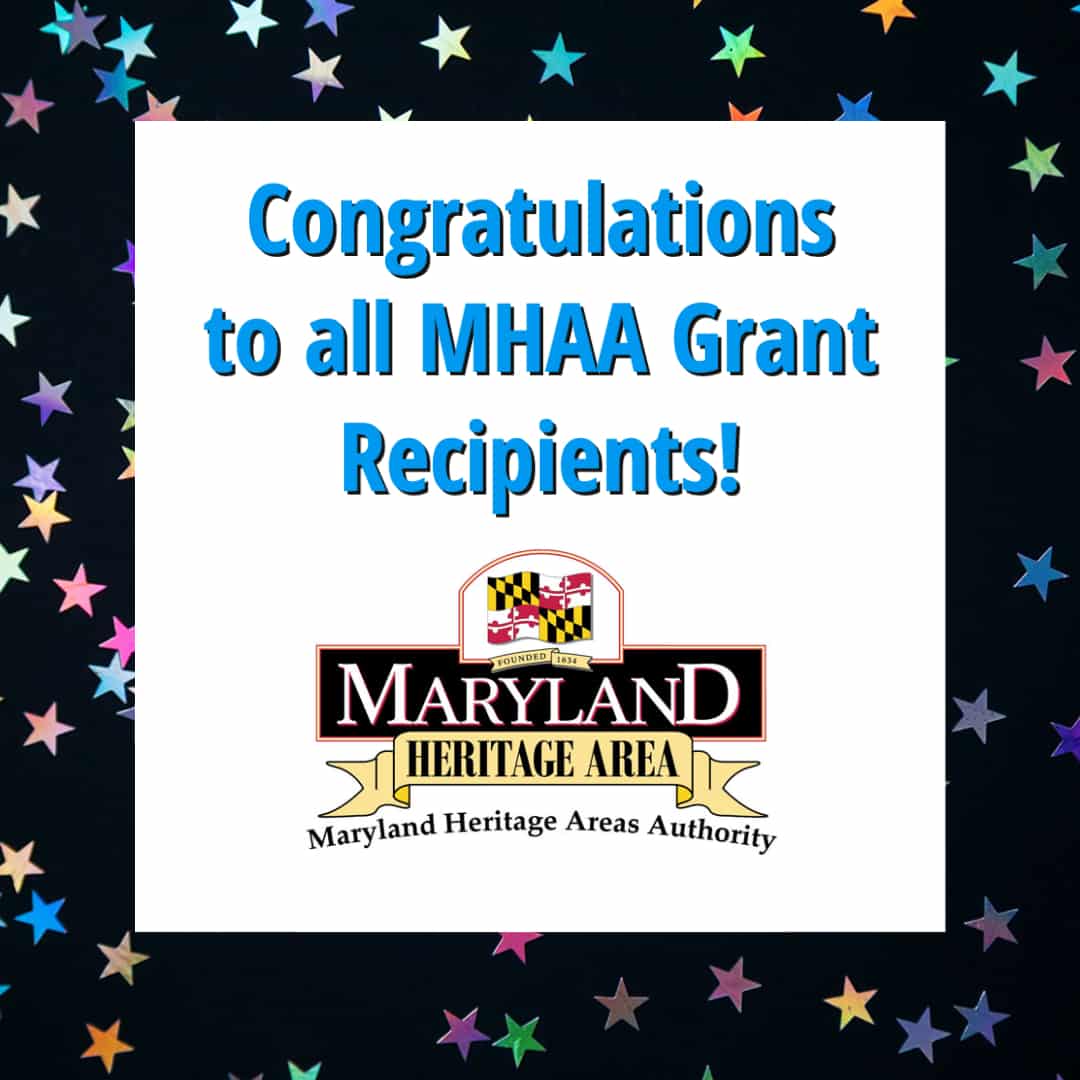Chesapeake Crossroads Heritage Area joins the Hogan Administration in announcing 8 new grants totaling $301,273 to local Annapolis and Anne Arundel County non-profit organizations by the Maryland Heritage Areas Authority (MHAA). The 8 local grants are among 107 matching grants totaling $5.1 million awarded to Maryland nonprofits, local jurisdictions, and other heritage tourism organizations. These grant funds support heritage tourism projects and activities that draw visitors and expand economic development and tourism-related job creation throughout Maryland.

“Heritage tourism is an economic development tool that creates jobs and brings visitors to the state while making our communities better places to live and work,” said Governor Larry Hogan. “Our administration is proud that this funding will allow for 107 projects to move forward and congratulate Maryland’s Heritage Areas and their tourism partners for their support in changing Maryland for the better.”
Organizations receiving grant awards include museums, parks, educational organizations, and other entities that steward and celebrate the unique cultural and natural resources located within one of Maryland’s Heritage Areas.
Grantees in the Chesapeake Crossroads Heritage Area include:
— Friends of Hancock’s Resolution, Inc., “Historic Hancock’s Resolution Exhibition Design Plan”
— Historic Annapolis, Inc., “William Paca Garden Accessibility: Implementation Phase”
— Kunta Kinte Celebrations Inc., “32nd Annual Kunta Kinte Heritage Festival”
— London Town Foundation, Inc., “ADA Pathways and Stormwater Management for the Eastern Campus”
— Wiley H. Bates Legacy Center, “The Wiley H. Bates Storytelling Project – Educate, Elevate, & Empower”
In addition, ALTSCHA, Inc. received a Management Grant for $100,000, a Block Grant for $25,000 (which will fund its Mini-Grant Program for FY2023), and a Marketing Grant for $25,000, making a total of $301,273 in MHAA funding to the Chesapeake Crossroads Heritage Area for FY2023, for projects totaling $621,176.
MHAA oversees Maryland’s system of 13 locally-administered, State-certified heritage areas. Today, all Maryland counties and Baltimore City have at least part of a State-certified heritage area within their boundaries. Heritage areas foster broad public-private partnerships to preserve and enhance the best of Maryland’s historic sites and towns, unspoiled natural landscapes, and enduring traditions. These tangible links to both place and the past encourage residents to recognize they have a special piece of the American story to treasure and share with others and that in doing so they are contributing to the economic well-being of Maryland’s communities.
Maryland’s heritage areas contribute to Maryland’s economy by saving and enhancing the places that attract heritage tourists – people who focus their travels on historic sites, museums, cultural activities, or the natural beauty of Maryland’s Atlantic and Chesapeake Bay coastal areas and unspoiled scenery of Mountain Maryland. The Maryland Heritage Areas Program provides $2.4 billion in annual economic impact and MHAA grants generate $319.8 million in state and local taxes and supports 33,815 full- and part-time jobs annually. A full economic impact study can be found here: https://mht.maryland.gov/heritageareas_impact.shtml.
The Maryland Heritage Areas Authority is an independent unit in the Executive Branch of government administered by the Maryland Department of Planning. Since its creation in 1996, MHAA has awarded over $46 million dollars in grants and helped to leverage more than $1.62 billion in non-state funding for heritage tourism projects and activities in Maryland’s 13 Certified Heritage Areas.
See the full list of the Maryland Heritage Area’s Program 107 grantees.
To learn more about the Maryland Heritage Areas Program and the state’s certified Heritage Areas, please visit http://mht.maryland.gov/heritageareas.shtml.
